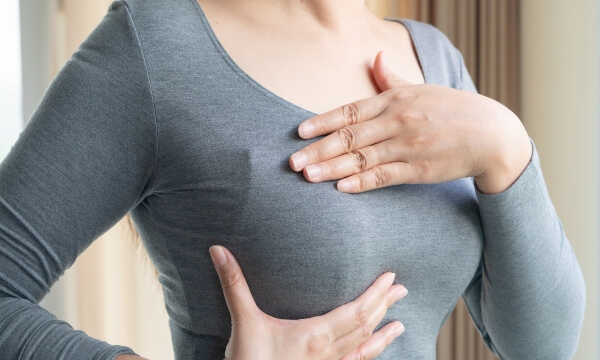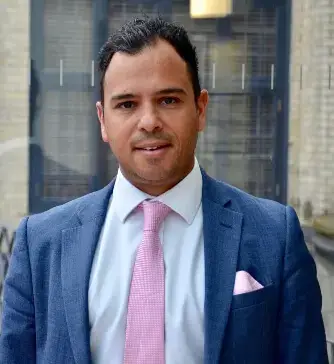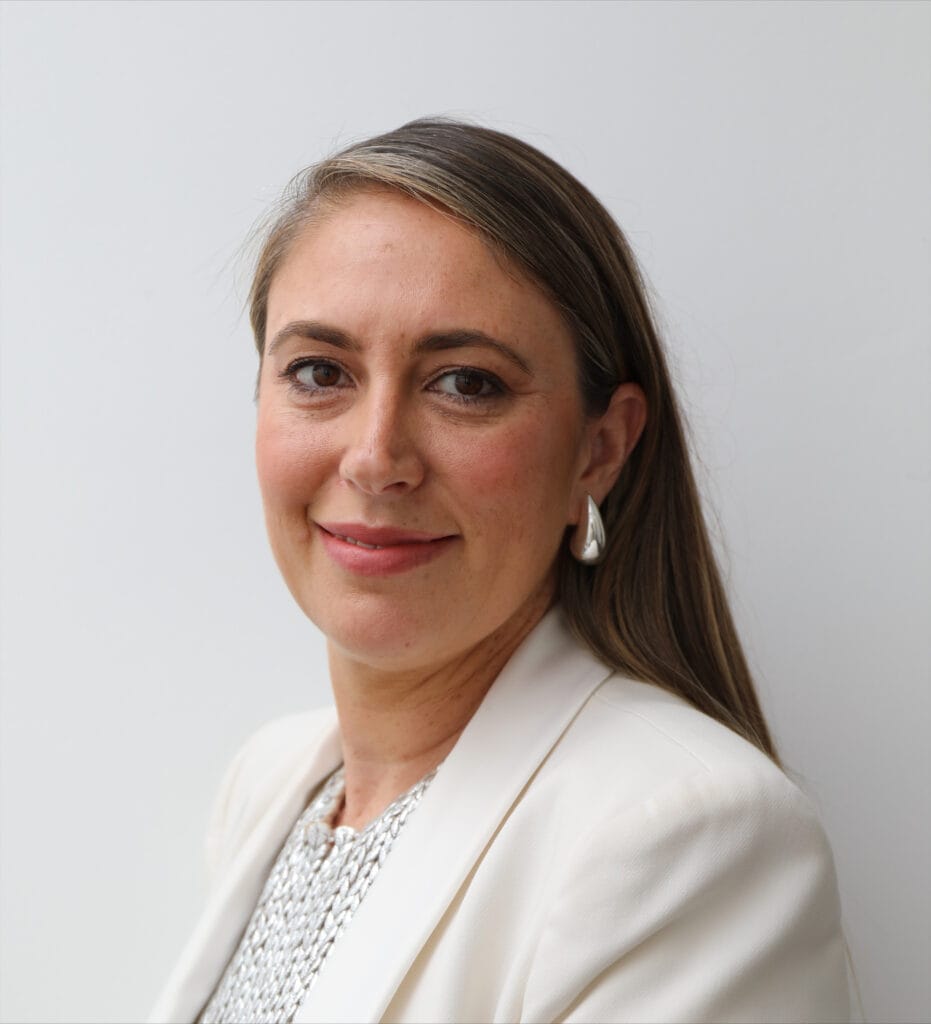Health Hub
All the things you wanted to know about breast cancer – but never dared ask
Checked for accuracy by Professor Daniel Leff

Mr Daniel Leff, Consultant in Oncoplastic Breast Surgery at King Edward VII’s Hospital, takes us through all the things you always wanted to know about breast cancer – but were too scared to ask.
In my practice, I see a lot of patients who have been holding off from asking questions because they’re embarrassed or are worried about what I’ll think.
But I always encourage my patients to come forward with whatever’s on their mind, rather than holding the question in or trying to search the internet for the answer. There’s plenty of misinformation out there and often you’ll come across myths that might make you feel worse, or worry unnecessarily, so it’s always best to speak to a medical professional if you have any concerns.
Here are a few answers to some questions you may have:
If a family member has had breast cancer, will I get it too?
There are lots of different risk factors for breast cancer. Some of these factors are genetic and some are environmental, so often it’s hard to say exactly why someone has developed a cancer – it could be due to multiple factors.
There are some genetic factors that we do know about – for example some families carry the BRCA 1 or 2 genes which raise the risk of some cancers, including breast and ovarian cancer in women and male breast cancer and prostate cancer in men.
If you have potential breast cancer symptoms and there is a history of breast, ovarian, prostate or pancreatic cancer in your family, it’s definitely worth seeking medical advice.
I’ve heard that being on the contraceptive pill (or taking HRT) could give you breast cancer?
There is some scientific research showing that people who take the contraceptive pill have a slightly higher chance of being diagnosed with breast cancer than people who have never taken it. But there are lots of other factors involved, including your family history as well as lifestyle factors such as the amount of alcohol you drink, being overweight, or previously having had radiation therapy.
There are some studies that show a link between taking HRT and a slightly increased risk of developing breast cancer in post-menopausal women – but only if you have taken it for longer than a year. And this risk starts to decrease when you stop taking it.
Should men check for breast cancer?
Although breast cancer in men is quite rare, we do diagnose around 500 men a year. When men feel a lump in their breast tissue, it’s more likely to be a benign growth than breast cancer, but I’d recommend that men get checked if they have felt a lump.
Should people who have had breast augmentation surgery be more worried?

There’s not enough evidence to know whether breast implants are a risk factor in breast cancer.
But a myth that I often hear is that breast implants make it impossible to detect or diagnose breast cancer. Happily, this is completely untrue. When it comes to self-examinations though, there are some different techniques to use. For example, people who have breast implants may want to lie down and feel for the implant, then feel carefully and gently for their ribs underneath to check for lumps.
When standing, it’s important to check for changes to the appearance of the breasts such as swelling, colour changes, rashes or puckering, by looking in the mirror. Try this both with arms raised and arms by the sides to help check for changes.
Are mammograms painful?
Everyone’s perception of pain is different. However, is it is true that some people find having a mammograms uncomfortable, but few find it very painful. We try to make the process as pain-free as possible, and depending on what exactly is needed to help with a diagnosis, we can numb the area too.
What I would say is that techniques are improving all the time, so I’d try not to let preconceptions or other people’s experiences put you off. If there’s something that you’re worried about it’s always important to get checked rather than delaying seeking help, as this could mean less invasive treatment later down the line.
Is it true that mammograms don’t work on younger people?
Breast cancer mainly occurs in people over 50, and it’s rare in people in their 20s and 30s, but that doesn’t mean that younger people shouldn’t be vigilant. The majority of lumps in younger people are totally benign lumps called fibroadenomas – which may feel hard and rubbery – but your GP may refer you to a breast clinic for a scan or biopsy to make sure.
It is true that mammograms are used more to diagnose breast cancer in older patients – because the breast tissue tends to be less dense, making it easier to detect on the mammogram. But we have lots of other very successful techniques to diagnose breast cancer in younger patients, such as ultrasound examinations.
Does nipple discharge indicate cancer?
In most cases, nipple discharge in women is completely normal, and discharge on its own isn’t usually a sign of breast cancer. It might just be something that happens from time to time, especially after giving birth or while breastfeeding, or it might be caused by widening of the ducts or a benign lump, or as a side effect of a medication.
But there are some signs that there may be something more serious going on. If fluid leaks out regularly, or spontaneously (without you pressing or squeezing the nipple) or is blood stained, then that can be a warning sign. And if you’re over 50 and / or have other symptoms like a lump, pain, swelling or a non-itchy rash on one breast, you should seek medical help.
It’s important to note that nipple discharge in men isn’t normal, so men who notice fluid coming from their nipples should make an appointment with their GP.
Is it harder to spot breast cancer when you’re pregnant or just had a baby?
There are lots of changes to the breasts during pregnancy and some women might notice new lumps in their breasts, or have discharge from the nipples that is either milky or bloody.
Most of the time, this is completely normal, but it’s still really important to check your breasts regularly even while pregnant or breast-feeding. Don’t assume that any new lumps or bumps are just associated with pregnancy or breast-feeding, and look out for other signs such as a lump or swelling in the armpit, a sunken nipple, dimpling or puckering of the skin or a rash on one breast.
And the main point I’d make here is that if something is worrying you, get it checked out.
Is it still possible to get breast cancer treatment during COVID?
If you have symptoms that you’re worried about, it’s important to still seek help. Lots of doctors are now conducting appointments over the phone or over video call, so it might be possible to reassure you without having to go to a GP surgery or hospital in person.
If a physical examination is necessary, medical staff have taken every precaution to keep patients safe. There might be some new rules to follow when you attend your appointment, so make sure you read any letters or correspondence carefully.
More information
- If you are concerned about your breast health or have noticed any changes in your breast/s, speak to your GP. (Don’t have a GP?)
- King Edward VII’s Breast Health Centre is a fully equipped unit, staffed by experts with access to the most up to date tests and treatments.
- Dr Daniel Leff is an expert in breast health and can provide expert treatment, advice and guidance. Make an enquiry.
Article Sections
Latest Hospital News
Should you wish to speak to our press team, please visit Press Enquiries





